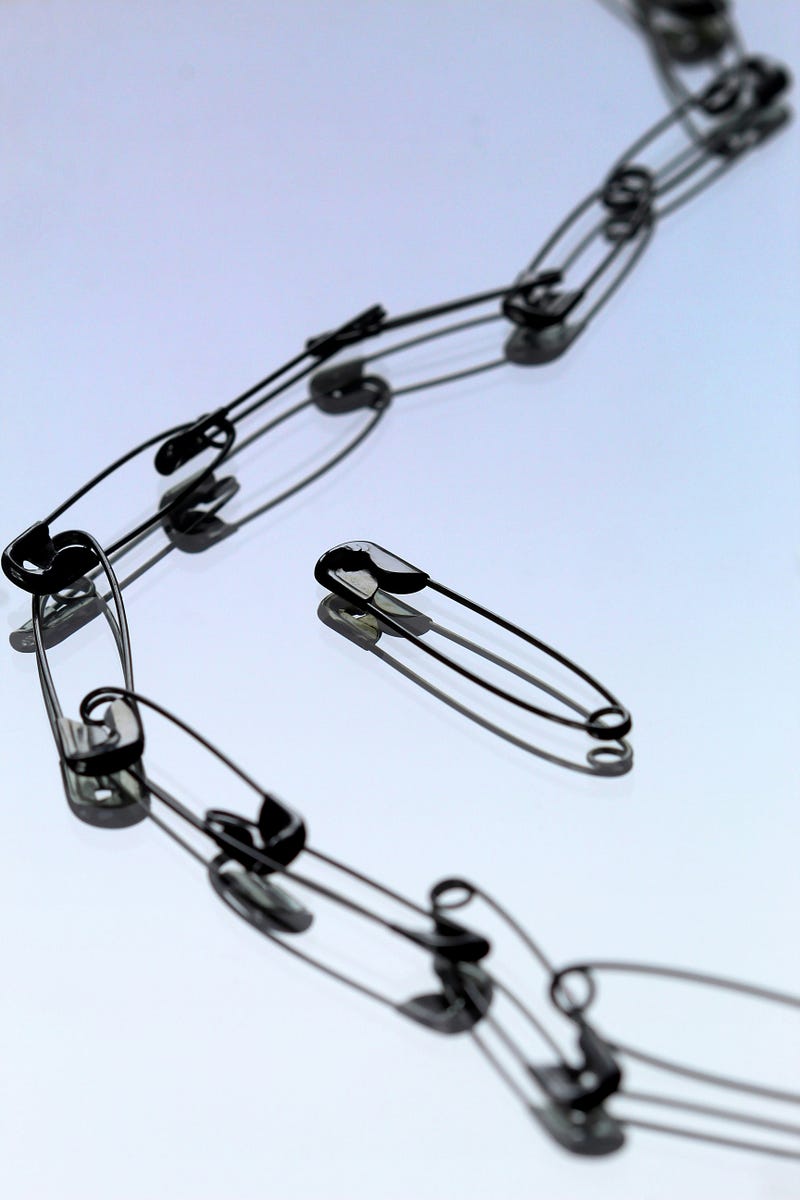Reclaiming Your Power: Overcoming Narcissistic Relationships
Written on
Understanding the Impact of Narcissistic Relationships
Engaging in relationships with narcissists can be exhausting, leaving you feeling emotionally trapped and questioning your self-worth. Whether it involves a romantic partner, a family member, or a friend, the manipulative tactics employed by narcissists can create a harmful atmosphere that feels impossible to escape. One effective strategy to regain your power and heal from this toxicity is through the practice of detachment.
Detachment is not about being indifferent or apathetic; rather, it represents a deliberate and empowering choice to disengage emotionally from the narcissist’s grasp. This approach enables you to break free from their manipulative behaviors, such as guilt-tripping, gaslighting, or love-bombing, all designed to maintain your dependence. By embracing detachment, you can reclaim your mental and emotional autonomy, while establishing healthy boundaries that safeguard your peace.

Understanding the Narcissist's Manipulative Tactics
Narcissists thrive on control and continuously seek validation, admiration, and attention. Their manipulative strategies may include:
- Gaslighting: Causing you to doubt your reality or perceptions.
- Blame-shifting: Refusing to take accountability for their actions, making you feel responsible.
- Love-bombing: Showering you with excessive affection and attention to keep you emotionally tethered.
- Silent treatment: Withholding affection or communication to compel compliance.
These tactics leave you emotionally exposed, longing for their approval while neglecting your own needs. Here, the significance of detachment becomes clear.

Harnessing the Power of Detachment
Detachment isn't about lacking care; it serves as a mechanism that enables you to separate your emotions from the narcissist's behavior. You can still express compassion and empathy while ensuring their actions no longer dictate your emotional state. The aim of detachment is to transition from being reactive to being mindful in your responses.
Here are some actionable steps to practice detachment:
Recognize the Pattern
The initial step in detaching is identifying the narcissist's behavioral patterns. Observe how they manipulate you—be it through guilt, flattery, or criticism—and understand that these tactics are part of their strategy to maintain control. Recognizing this cycle helps you see their actions as reflections of their insecurities rather than your shortcomings.
Establish Boundaries
Narcissists often disregard your boundaries to get what they desire. Clearly defining your limits and consistently enforcing them can prevent the narcissist from exploiting your kindness or emotional availability. Boundaries may involve limiting contact, declining unreasonable demands, or exiting toxic conversations. The key is to adhere to these boundaries without guilt.
Cultivate Emotional Independence
The narcissist's control stems from your emotional dependence on them, as you continuously seek their approval. Detachment shifts this focus inward, prioritizing your own well-being and empowerment. Engage in activities that bring you joy, nurture your interests, and surround yourself with supportive individuals. As you rebuild your emotional independence, the narcissist's grip on you will diminish.
Release the Need for Approval
One of the most liberating aspects of detachment is relinquishing the need for the narcissist's validation. They may never acknowledge your feelings or appreciate your worth, and that's perfectly fine. Detachment involves recognizing that you don’t need their approval to feel whole. Instead, foster self-acceptance and trust your own feelings and instincts.
Stay Non-Reactive
Narcissists often thrive on drama and emotional responses. They may provoke you to elicit a reaction that grants them control. Detachment means remaining calm and non-reactive in such instances. Rather than engaging in arguments or justifying yourself, step back and maintain your composure. By refusing to respond emotionally, you deprive the narcissist of the power they seek.
Embrace Mindfulness
Mindfulness is crucial in practicing detachment. By staying present and aware, you can observe the narcissist’s manipulative tactics without becoming embroiled in them. When the urge to react emotionally arises, pause and breathe. Consider whether engaging will serve your best interests or simply reinforce their control. This mindfulness allows you to respond from a place of strength rather than reactivity.
Prioritize Your Healing
Recovery from a relationship with a narcissist necessitates deep self-care. As you practice detachment, it’s vital to prioritize your mental, emotional, and spiritual health. This might involve therapy, journaling, meditation, or engaging in creative activities that facilitate emotional processing. Detachment liberates energy that was once drained by the narcissist, enabling you to focus on rebuilding yourself.

Detachment as an Expression of Self-Love
Detaching from a narcissist is one of the most empowering actions you can undertake. It represents an act of self-love and self-preservation that allows you to liberate yourself from their toxic influence. While the journey may require time, especially after years of entanglement, each step toward detachment signifies a movement toward reclaiming your power and independence.
Keep in mind that you are not defined by the narcissist’s view of you. Through detachment, you can disentangle yourself from their harmful behavior and cultivate a life filled with authentic relationships, tranquility, and emotional liberation. Ultimately, the most effective way to overcome a narcissist's hold is by choosing yourself—completely, courageously, and unapologetically.
By embracing detachment, you’re not merely surviving; you’re flourishing.
Reclaiming Your Power in Narcissistic Relationships - This video discusses strategies to reclaim your strength and emotional well-being when dealing with narcissistic individuals.
Dr. Ramani: The Best Way to Deal with Narcissists Without Arguing - Dr. Ramani shares effective techniques for managing interactions with narcissists while maintaining your emotional stability.